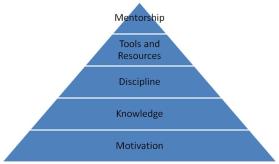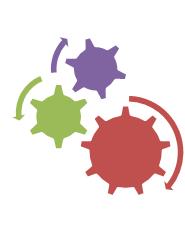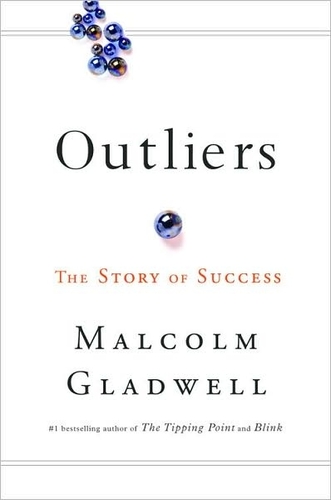This is a lengthy article published on the Washington Post’s website (links added by me), but required reading for this blog. It should serve as motivation for those on their way, and an eye opener to those who discredit the benefits of following advice on blogs like this. I highly encourage you read this all the way through!
Poor? Pay Up.
Having Little Money Often Means No Car, No Washing Machine, No Checking Account And No Break From Fees and High Prices
You have to be rich to be poor.
That’s what some people who have never lived below the poverty line don’t understand.
Put it another way: The poorer you are, the more things cost. More in money, time, hassle, exhaustion, menace. This is a fact of life that reality television and magazines don’t often explain.
So we’ll explain it here. Consider this a primer on the economics of poverty.
“The poor pay more for a gallon of milk; they pay more on a capital basis for inferior housing,” says Rep. Earl Blumenauer (D-Ore.). “The poor and 100 million who are struggling for the middle class actually end up paying more for transportation, for housing, for health care, for mortgages. They get steered to subprime lending. . . . The poor pay more for things middle-class America takes for granted.”
Poverty 101: We’ll start with the basics.
Like food: You don’t have a car to get to a supermarket, much less to Costco or Trader Joe’s, where the middle class goes to save money. You don’t have three hours to take the bus. So you buy groceries at the corner store, where a gallon of milk costs an extra dollar.
A loaf of bread there costs you $2.99 for white. For wheat, it’s $3.79. The clerk behind the counter tells you the gallon of leaking milk in the bottom of the back cooler is $4.99. She holds up four fingers to clarify. The milk is beneath the shelf that holds beef bologna for $3.79. A pound of butter sells for $4.49. In the back of the store are fruits and vegetables. The green peppers are shriveled, the bananas are more brown than yellow, the oranges are picked over.
(At a Safeway on Bradley Boulevard in Bethesda, the wheat bread costs $1.19, and white bread is on sale for $1. A gallon of milk costs $3.49 — $2.99 if you buy two gallons. A pound of butter is $2.49. Beef bologna is on sale, two packages for $5.)
Prices in urban corner stores are almost always higher, economists say. And sometimes, prices in supermarkets in poorer neighborhoods are higher. Many of these stores charge more because the cost of doing business in some neighborhoods is higher. “First, they are probably paying more on goods because they don’t get the low wholesale price that bigger stores get,” says Bradley R. Schiller, a professor emeritus at American University and the author of The Economics of Poverty and Discrimination
“The real estate is higher. The fact that volume is low means fewer sales per worker. They make fewer dollars of revenue per square foot of space. They don’t end up making more money. Every corner grocery store wishes they had profits their customers think they have.”
According to the Census Bureau, more than 37 million people in the country live below the poverty line. The poor know these facts of life. These facts become their lives.
Time is money, they say, and the poor pay more in time, too.
When you are poor, you don’t have the luxury of throwing a load into the washing machine and then taking your morning jog while it cycles. You wait until Monday afternoon, when the laundromat is most likely to be empty, and you put all of that laundry from four kids into four heaps, bundle it in sheets, load a cart and drag it to the corner.
“If I had my choice, I would have a washer and a dryer,” says Nya Oti, 37, a food-service worker who lives in Brightwood. She stands on her toes to reach the top of a washer in the laundromat on Georgia Avenue NW and pours in detergent. The four loads of laundry will take her about two hours. A soap opera is playing loudly on the television hanging from the ceiling. A man comes in talking to himself. He drags his loads of dirty sheets and mattress pads and dumps them one by one into the machines next to Oti.
She does not seem to notice. She is talking about other costs of poverty. “My car broke down this weekend, and it took a lot of time getting on the bus, standing on the bus stop. It was a waste of a whole lot of times. Waiting. The transfer to the different bus.”
When she has her car, she drives to Maryland, where she shops for her groceries at Shoppers Food Warehouse or Save-A-Lot, where she says some items are cheaper and some are higher. “They have a way of getting you in there on a bargain. You go in for something cheap, but something else is more expensive.” She buys bags of oranges or apples, but not the organic kind. “Organic is too much,” she says.
“When you are poor, you substitute time for money,” says Randy Albelda, an economics professor at the University of Massachusetts at Boston. “You have to work a lot of hours and still not make a lot of money. You get squeezed, and your money is squeezed.”
The poor pay more in hassle: the calls from the bill collectors, the landlord, the utility company. So they spend money to avoid the hassle. The poor pay for caller identification because it gives them peace of mind to weed out calls from bill collectors.
The rich have direct deposit for their paychecks. The poor have check-cashing and payday loan joints, which cost time and money. Payday advance companies say they are providing an essential service to people who most need them. Their critics say they are preying on people who are the most “economically vulnerable.”
“As you’ve seen with the financial services industry, if people can cut a profit, they do it,” Blumenauer says. “The poor pay more for financial services. A lot of people who are ‘unbanked’ pay $3 for a money order to pay their electric bill. They pay a 2 percent check-cashing fee because they don’t have bank services. The reasons? Part of it is lack of education. But part of it is because people target them. There is evidence that credit-card mills have recently started trolling for the poor. They are targeting the recently bankrupt.”
Outside the ACE check-cashing office on Georgia Avenue in Petworth, Harrison Blakeney, 67, explains a hard financial lesson of poverty. He uses the check-cashing store to pay his telephone bill. The store charges 10 percent to take Blakeney’s money and send the payment to the phone company. That 10 percent becomes what it costs him to get his payment to the telephone company on time. Ten percent is more than the cost of a stamp. But, Blakeney says: “I don’t have time to mail it. You come here and get it done. Then you don’t get charged with the late fee.”
Blakeney, a retired auto mechanic who now lives on a fixed income, says: “We could send the payment ahead of time but sometimes you don’t have money ahead of time. That’s why you pay extra money to get them to send it.”
Blakeney, wearing a purple jacket, leans on his cane. He has no criticism for the check-cashing place. “That’s how they make their money,” he says. “I don’t care about the charge.”
Just then, Lenwood Brooks walks out of the check-cashing place. He is angry about how much it just cost him to cash a check. “They charged me $15 to cash a $300 check,” he says.
You ask him why he didn’t just go to a bank. But his story is as complicated as the various reasons people find themselves in poverty and in need of a check-cashing joint. He says he lost his driver’s license and now his regular bank “won’t recognize me as a human. That’s why I had to come here. It’s a rip-off, but it’s like a convenience store. You pay for the convenience.”
Then there’s credit. The poor don’t have it. What they had was a place like First Cash Advance in D.C.’s Manor Park neighborhood, where a neon sign once flashed “PAYDAY ADVANCE.” Through the bulletproof glass, a cashier in white eyeliner and long white nails explained what you needed to get an advance on your paycheck — a pay stub, a legitimate ID, a checkbook. This meant you’re doing well enough to have a checking account, but you’re still poor.
And if you qualify, the fee for borrowing $300 is $46.50.
That was not for a year — it’s for seven days, although the terms can vary. How much interest will this payday loan cost you? In simple terms, the company is charging a $15.50 fee for every $100 that you borrow. On your $300 payday loan — borrowed for a term of seven days — the effective annual percentage rate is 806 percent.
The cashier says that what you do is write First Cash Advance a check for $345.50 plus another $1 fee, and it will give you $300 in cash upfront. It holds the check until you get paid. Then you bring in $346.50 and it returns your check. Or it cashes the check and keeps your $346.50, or you have the option of extending the loan with additional fees. You’ll be out $46.50, which you’d rather have for the late fee on the rent you didn’t pay on time. Or the gas bill you swear you paid last month but the gas company swears it never got.
But now the payday advance place has closed, shuttered by metal doors. A sign in the front door says the business has moved. After the D.C. government passed a law requiring payday lenders to abide by a 24-percent limit on the annual percentage rate charged on a loan, many such stores in the District closed. Now advocates for the poor say they are concerned about other businesses that prey on poor people by extending loans in exchange for car titles. If a person does not pay back the loan, then the business becomes the owner of the car.
All these costs can lead the poor to a collective depression. Douglas J. Besharov, resident scholar at the American Enterprise Institute, says: “There are social costs of being poor, though it is not clear where the cause and effect is. We know for a fact that on certain measures, people who are poor are often more depressed than people who are not. I don’t know if poverty made them depressed or the depression made them poor. I think the cause and effect is an open question. Some people are so depressed they are not functional. ‘I live in a crummy neighborhood. My kids go to a crummy school.’ That is not the kind of scenario that would make them happy.” Another effect of all this, he says: “Would you want to hire someone like that?”
The poor suspect that prices are higher where they live, even the prices in major supermarkets. The suspicions sometimes spill over into frustration.
On a hot spring afternoon, Jacob Carter finds himself standing in a checkout line at the Giant on Alabama Avenue SE. Before the cashier finishes ringing up his items, he puts $43 on the conveyor belt. But his bill comes to $52.07. He has no more money, so he tells the clerk to start removing items.
The clerk suggests that he use his “bonus card” for savings.
Carter tells the clerk he has no such card.
He puts back the liter of soda. Puts back the paper towels. Sets aside $9 worth of hot fried chicken wings. He returns $13 worth of groceries. “Y’all got some high prices in this [expletive],” he says, standing in Aisle 4, blue shirt over work clothes.
The clerk suggests that he take his cash off the conveyor belt, because if she moves the belt the money will be carried into the machinery. Then the money will be gone.
Carter, a building engineer, snatches up the money, then gives it to the clerk. His final bill is $39.07.
He looks at the receipt and then announces without the slightest indication as to why: “Just give me all my [expletive] money back. It’s too high in this [expletive].” The clerk calls the supervisor, who comes over. The supervisor doesn’t argue with Carter. She just starts the process of giving him a refund.
“I want my money back. This [expletive] is too high. My grandmother told me about this store.”
The supervisor returns $39.07 in cash. “Sir,” she says, “have a blessed day.”
The food in this supermarket might be cheaper than the goods at a corner store. But Carter still feels frustrated by what he thinks is a mark-up on prices in supermarkets in poor neighborhoods. Carter walks out.
The poor pay in other ways, ways you might never imagine. Jeanette Reed, who is retired and lives on a fixed income, sold her blood when she needed money. “I had no other source to get money,” she says. “I went to the blood bank. And they gave me $30.
“I needed the money. I didn’t have the money and no source of getting money. No gas. No food. I have to go to a center that gives out boxes of food once a month. They give you cereal or vouchers for $10. They give you canned tuna and macaroni and cheese. Crackers and soup. They give you commodities like day-old bread.”
The poor know the special economics of their housing, too.
“You pay rent that might be more than a mortgage,” Reed says. “But you don’t have the credit or the down payment to buy a house. Apartments are not going down. They are going up. They say houses are better, cheaper. But how are you going to get in a house if you don’t have any money for a down payment?”
There is also an economic cost to living in low-income neighborhoods.
“The cheaper housing is in more-dangerous areas,” says Reed, who lives in Southeast Washington. “I moved out of my old apartment. I hate that area. They be walking up and down the street. Couldn’t take the dog out at night because strangers walking up and down the street. They will knock on your door. Either they rob you, kill or ask for money. If you’re not there, they will steal air conditioners and copper. They will sell your copper [pipes] for money.”
And then there is the particular unpleasantness when you make too much money to fall below the poverty line, but not enough to move up, up and away from it.
For our final guest lecturer on poverty we take you to the Thrift Store on Georgia Avenue and Marie Nicholas, 35, in an orange shirt, purple pants and thick black eyeliner. She is what economists call the working poor.
She is picking through the racks. The store is busy with customers on a Monday afternoon. There is the shrill sound of hangers sliding across racks under fluorescent lights. An old confirmation dress hangs from the ceiling. It has faded to yellow. It’s not far from the used silver pumps, size 9 1/2 , nearly new, on sale for $9.99.
“People working who don’t make a lot of money go to the system for help, and they deny them,” Nicholas says. “They say I make too much. It almost helps if you don’t work.”
She says she makes $15 an hour working as a certified nursing assistant. She pays $850 for rent for a one-bedroom that she shares with her boyfriend and child. She went looking for a two-bedroom unit recently and found it would cost her $1,400. She pays $300 a month for child care for her 11-year-old son, who is developmentally delayed. She tried to put him in a subsidized child-care facility, but was told she makes too much money. “My son was not chosen for Head Start because I wasn’t in a shelter or on welfare. People’s kids who do go don’t do nothing but sit at home.”
Money and time. “I ride the bus to get to work,” Nicholas says. It takes an hour. “If I could drive, it would take me 10 minutes. I have to catch two buses.” She gets to the bus stop at 6:30 a.m. The bus is supposed to come every 10 or 15 minutes. Sometimes, she says, it comes every 30 minutes.
What could you accomplish with the lost 20 minutes standing there in the rain? Waiting. That’s another cost of poverty. You wait in lines. You wait at bus stops. You wait on the bus as it makes it way up Georgia Avenue, hitting every stop. No sense in trying to hurry when you are poor.
When you are poor, you wait.


 Two words: College swagger. For those people still fumbling around trying to figure out the “ebay thing”, Michael Booker has been “finding electronics (laptops, cell phones, accesories, etc) that are either partly damaged or all out broken and selling them online.” If every college kid was as resourceful and net savvy as Mike (ahem, excuse me, Mr. Booker), parents would have no worries! With his clean and intelligent writing style, and great advice (as well as “What Im Up To” posts that you will actually want to read) you will forget that TGT (Time Greater than Money) is the brainchild of a 22 year old (some stuff I read and Im still like “Where does he learn all this?!”)
Two words: College swagger. For those people still fumbling around trying to figure out the “ebay thing”, Michael Booker has been “finding electronics (laptops, cell phones, accesories, etc) that are either partly damaged or all out broken and selling them online.” If every college kid was as resourceful and net savvy as Mike (ahem, excuse me, Mr. Booker), parents would have no worries! With his clean and intelligent writing style, and great advice (as well as “What Im Up To” posts that you will actually want to read) you will forget that TGT (Time Greater than Money) is the brainchild of a 22 year old (some stuff I read and Im still like “Where does he learn all this?!”)



















 Step 2: Now, you should see the SmartArt Graphic on your clipboard. On the Home tab, in the Clipboard group, click the arrow under Paste, and then click Paste Special.
Step 2: Now, you should see the SmartArt Graphic on your clipboard. On the Home tab, in the Clipboard group, click the arrow under Paste, and then click Paste Special.



